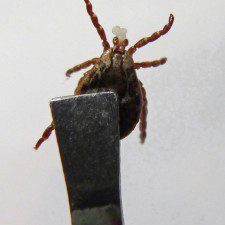While I’m cheering on the warmer weather of summer, the relative warmth of this past winter has given us a “bounty” we probably don’t want. Ticks are back and more plentiful than ever, which means that Lyme disease could reach record numbers in the coming months.
In nature, balance is key and unexpected conditions can have ripple effects far beyond those expected at first glance. Specifically, the winter’s decreased snowfall means an abundance of the deer mice that host ticks – which, in turn, leads to huge numbers of the parasite. Importantly this year, more than 1/3 of these ticks are currently testing positive for Lyme disease.
This recent Wall Street Journal story provides more detail. (Click here to learn more).
As a proud pet parent, you must take precautions to protect both you and your furry family member. First, know the symptoms of this relatively common canine disease are similar to those in humans:
- Fever
- Reduced energy
- Loss of appetite
- Lameness
- Joint pain/swelling
Symptoms can progress to kidney failure, which can be fatal. Serious cardiac and neurological effects can also occur.
As they say, the best defense is a good offense. The Center for Disease Control lists these ways to prevent Lyme disease:
- Check your pets for ticks daily, especially right after they spend time outdoors.
- If you find a tick on your dog, remove it right away. Additionally, if you believe your pet to be at risk, come in for an exam and tick check.
- Discuss tick-borne diseases specific to our area at your pet’s next appointment.
- Reduce tick habitat in your yard by clearing tall grasses and brush from your yard and mowing and raking the yard regularly.
- Use flea and tick prevention products regularly. We have customized recommendations for your pet, just give us a call.
- Have your pet tested for tick-borne diseases annually, even if your dog doesn’t seem to have any symptoms.
As a final comforting thought, Lyme disease can’t be transmitted from one pet to another, nor from pets to humans, except through tick bites. My final advice is: stay alert, use precautions and enjoy your summer wisely!






